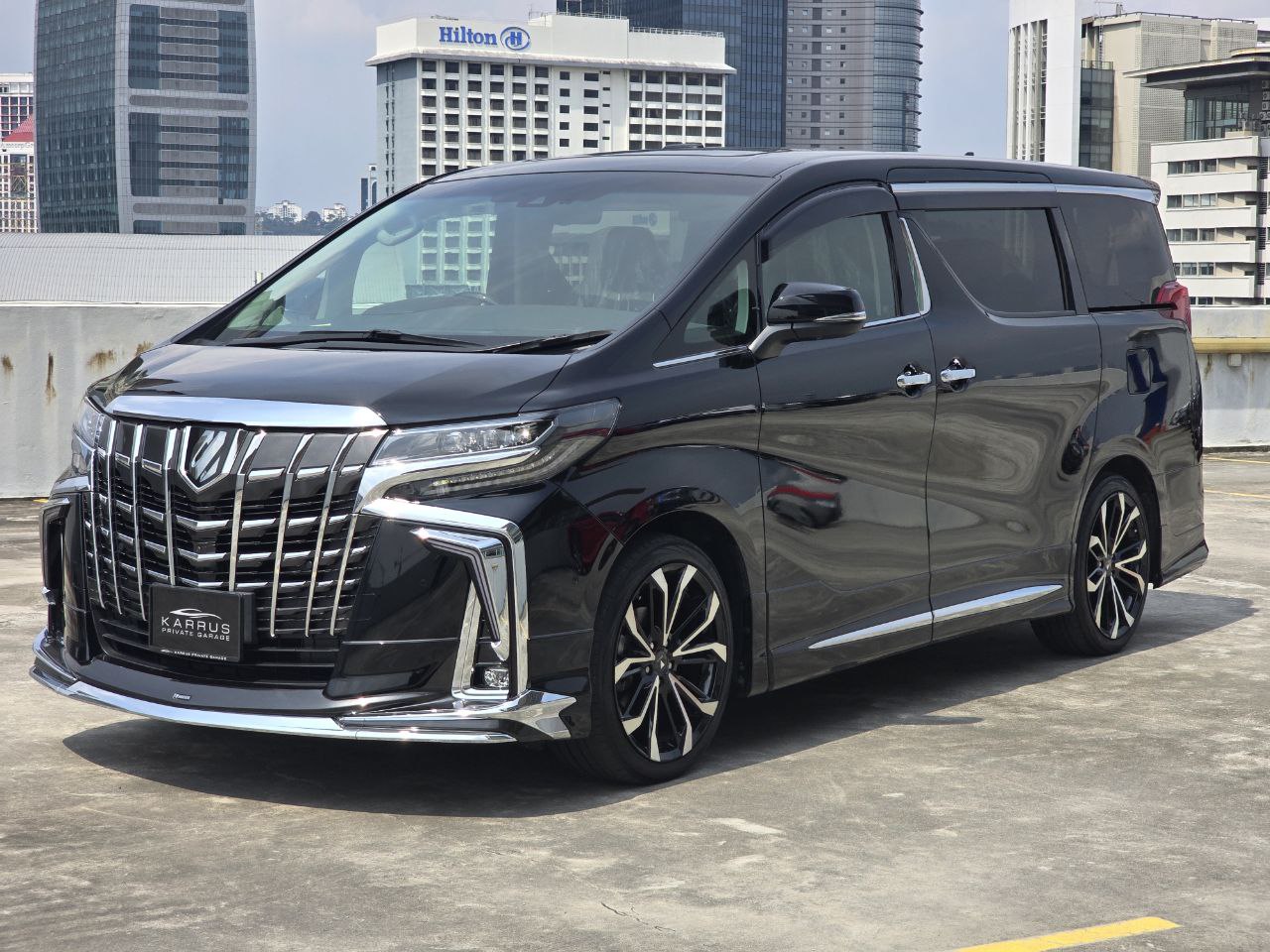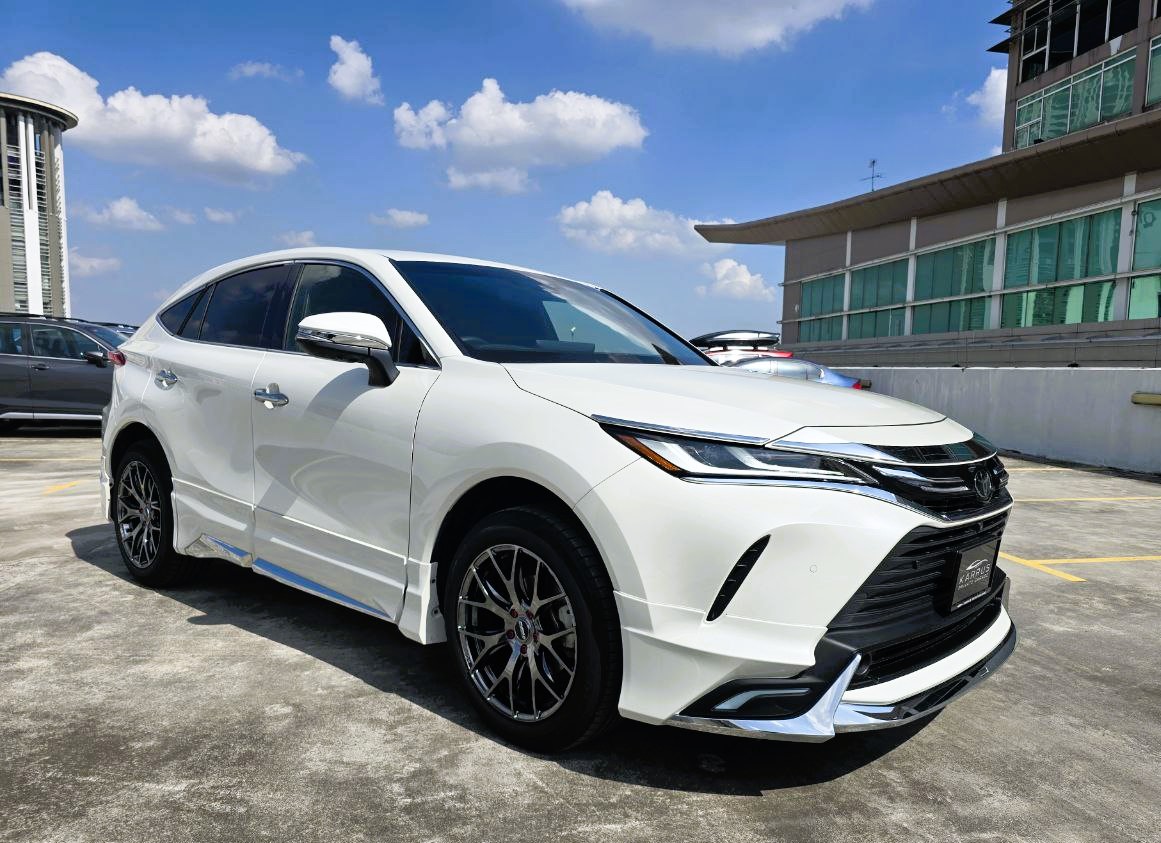
Alphard SC: Why It’s a Popular Choice in Ma ..
Aug 09 - 2025

29
Nov
In recent years, SUVs have become a dominant force in the automotive industry, especially in Malaysia. With their blend of versatility, performance, and style, it’s no surprise that consumers are flocking to these vehicles in droves. The popularity of SUVs in Malaysia reflects global trends, but with a local twist. As the country continues to grow economically, more Malaysian drivers are seeking vehicles that can meet both urban and rural demands. SUVs, known for their durability and spaciousness, fit this bill perfectly.
Globally, the demand for SUVs has skyrocketed, with reports indicating that the SUV market share has grown to nearly 46% of all vehicle sales worldwide in 2023. In Malaysia, this trend is mirrored by an increasing appetite for these multi-functional vehicles. Factors such as a growing middle class, favourable financing options, and rising fuel efficiency standards have made SUVs a preferred choice for many Malaysians.
TC Autohub, a leader in the automotive space, has been at the forefront of providing top-notch SUVs tailored to local preferences. From compact models suitable for city driving to larger, family-friendly vehicles designed for long-distance travel, TC Autohub has something for every buyer. As we compare the SUV market in Malaysia to other global regions, we’ll explore the key features, preferences, and trends driving this demand, helping you make an informed decision on your next vehicle purchase.
A.1. Affordability and Value
One of the key advantages of the SUV market in Malaysia is affordability. Malaysian buyers benefit from competitive pricing due to local assembly of many SUV models. Locally assembled vehicles avoid hefty import taxes, making them more accessible to the average consumer. Additionally, Malaysia’s favourable financing options, such as low-interest loans, make SUVs more attainable for a wider demographic.
Furthermore, government incentives also play a pivotal role in lowering the overall cost. Initiatives like tax rebates for energy-efficient vehicles, including some hybrid SUVs, have made purchasing an SUV more financially viable. For many Malaysians, this combination of affordability and value offers the perfect opportunity to own a vehicle that suits their needs.
A.2. Preference for Compact and Mid-size SUVs
Malaysians have shown a strong preference for compact and mid-size SUVs, particularly in urban areas where traffic congestion and tight parking spaces are common. Compact SUVs like the Honda HR-V or Proton X50 offer the perfect blend of manoeuvrability, fuel efficiency, and interior space, making them a popular choice for city dwellers.
Mid-size SUVs, on the other hand, provide versatility for families who want a balance between city driving and the ability to venture off-road or handle rougher terrains. Models such as the Toyota Fortuner and Mazda CX-5 dominate this segment, thanks to their spacious interiors and reliable performance in both urban and rural settings.
A.3. Rising Demand for Electric and Hybrid SUVs
Brands such as Volvo and Hyundai have already introduced hybrid or fully electric SUVs to the Malaysian market, catering to the environmentally conscious consumer. As the country continues to prioritise green technology, we can expect the demand for electric SUVs to rise, particularly among younger buyers keen to reduce their carbon footprint.
B.1. SUV Size and Type Preferences
SUV preferences vary widely across regions. In markets like the United States and Europe, there is a greater demand for larger, full-size SUVs, such as the Ford Explorer and BMW X7. These vehicles cater to consumers who prioritise space, comfort, and towing capacity for large families or outdoor adventures. In contrast, compact SUVs dominate in Asia-Pacific, where smaller vehicles are preferred for manoeuvrability in dense urban areas. Malaysian drivers align more with the Asia-Pacific trend, gravitating toward compact and mid-size SUVs for their balance of space and efficiency.
B.2. Technological Advancements and Features
SUVs sold in international markets, particularly in Europe and the U.S., tend to lead in cutting-edge technological advancements. Features like lane-keeping assist, autonomous driving, and advanced infotainment systems are common in European luxury SUVs. In Malaysia, however, consumers are increasingly tech-savvy, and local SUV models are rapidly catching up with integrated touchscreens, smartphone connectivity, and advanced safety features like adaptive cruise control.
B.3. Price and Value Proposition
When comparing price, Malaysian SUVs have a distinct advantage due to local assembly, which helps keep costs down. In contrast, import taxes and other regulatory costs make SUVs more expensive in foreign markets. This price difference makes Malaysia a more attractive market for SUV buyers who are looking for value without sacrificing quality or performance. Malaysian drivers can enjoy vehicles that offer a global standard of performance but at a more affordable price.
Globally, the SUV market continues to grow, driven by several key trends. First, there is a significant shift towards sustainability, with electric and hybrid SUVs gaining momentum in Europe, North America, and now Asia.
Second, digital and technological innovations are transforming the way we drive. From autonomous driving to advanced safety features like automatic emergency braking, technology has become a major selling point for SUVs. These features not only enhance safety but also provide a more enjoyable driving experience, catering to tech-savvy consumers who demand convenience and luxury in their vehicles.
Finally, SUVs are benefiting from the rising consumer preference for multi-purpose vehicles. Families and adventure-seekers alike appreciate the versatility of SUVs, which can easily transition from daily commutes to weekend getaways. With global demand expected to keep rising, the SUV segment shows no signs of slowing down.
SUVs are popular in Malaysia because they offer a versatile blend of performance, spacious interiors, and the ability to handle both urban and rural environments, making them ideal for the diverse needs of Malaysian drivers.
Malaysian SUVs are increasingly fuel-efficient, thanks to advancements in hybrid and electric vehicle technology. Many locally available models are comparable to international offerings in terms of fuel consumption and environmental sustainability.
Popular brands include Honda, Proton, Toyota, and Mazda, with models like the Honda CR-V, Proton X50, and Toyota Fortuner leading the market due to their reliability, performance, and affordability.
Yes, hybrid and electric SUVs are becoming more common in Malaysia. Brands like Volvo, Hyundai, and Toyota offer eco-friendly SUVs, and the government is working to expand EV infrastructure to support the growing demand.
TC Autohub provides a variety of financing options, including low-interest loans and flexible payment plans, to make purchasing an SUV more accessible to Malaysian consumers.
In conclusion, the SUV market in Malaysia offers a wide array of options that cater to both urban and rural drivers. Compared to other global markets, Malaysia stands out for its affordability, thanks to local assembly and competitive pricing. Whether you're looking for a compact SUV for city driving or a mid-size vehicle for family adventures, TC Autohub is the go-to destination for finding the right SUV to meet your lifestyle and budget.
At TC Autohub, we pride ourselves on offering a comprehensive selection of high-quality SUVs, from top global brands to trusted local manufacturers. With our expert team and flexible financing options, we’re here to help you make the best choice for your next vehicle.
Call to Action: Visit TC Autohub today to explore our wide range of SUVs, book a test drive, and discover the perfect financing option tailored to your needs. Contact us and let us help you get behind the wheel of your dream SUV!